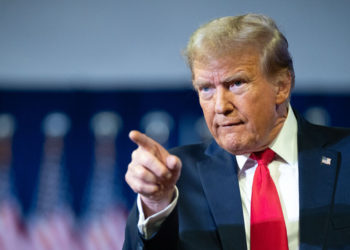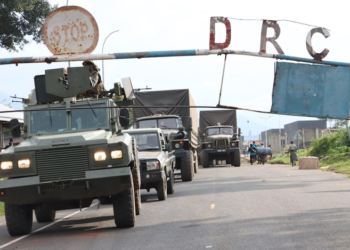By AL JAZEERA
Islamabad, Pakistan – From the outside, one might assume that the former premises of Marghazar Zoo are now deserted. A dilapidated ticket office and overgrown foliage suggest an absence of visitors. But listen closely, and you might hear the chatter of monkeys, the growl of bears, and even the roar of a tiger.
The Islamabad High Court ordered Marghazar Zoo to be closed in 2020, following local and global protest against its treatment of animals. After relocating the animals, the High Court in Islamabad ordered the zoo’s premises to be entrusted to the Islamabad Wildlife Management Board (IWMB), a government body in charge of preserving the wildlife of Islamabad and the neighbouring Margalla Hills National Park.
Pakistan is a richly biodiverse country, home to several endangered species threatened by illegal hunting, poaching and habitat loss. Facing daily reports of injured and trafficked wildlife, the IWMB gradually began to use the old zoo’s premises as a rehabilitation centre for rescued animals, in collaboration with local animal rights activists and the conservation non-profit, Second Chance Wildlife.
Since 2020, the Margalla Wildlife Rescue Centre has rescued more than 380 animals, including rhesus monkeys, Asian black bears, Indian pangolins, several bird species and a three-month-old Bengal tiger. As well as receiving reports about injured animals, the centre leads raids to rescue animals when they hear of criminal activity.
Some of these animals were rescued from poachers. Others, like the bears, had been used for entertainment, forced to “dance” or fight for entertainment.
Baboo, the young tiger, was in critical condition when he was rescued. “When we found him, he was so weak he couldn’t walk,” says IWMB ranger Anees Hussain. Early separation from his mother had led to malnutrition and he had multiple bone fractures.
Over the 14 months following his rescue, a small team of staff and volunteers at the centre nursed Baboo back to health. “Initially, we were not sure he would make it,” said Dr Usman Khan, one of the veterinary consultants handling the young tiger’s care. “It is thanks to the daily care and treatment that he received [at the centre] that he made a full recovery.”
Yet as Baboo grew, it became increasingly clear that he needed more space and the company of other tigers – something the centre could not provide. On February 14, after a lengthy administrative and fundraising process, Baboo was successfully relocated to Isindile Big Cat and Predator Sanctuary in South Africa.
The IWMB is planning to establish a sanctuary that can permanently house animals that cannot be released into their natural habitat. However, the centre’s survival is not without obstacles. Fundraising is a constant challenge as the centre relies heavily on civil society donations to meet the growing cost of maintaining the facilities and caring for the animals. “We are currently operating on a subsistence budget from one week to the next,” said Leah Boyer, co-founder of Second Chance Wildlife.
Not everyone supports the centre’s mission. The Capital Development Authority, a civic authority responsible for providing municipal services and which previously managed the zoo, has repeatedly attempted to reclaim the premises and parts of the Margalla Hills National Park to reopen the old zoo. However, it did not challenge the High Court’s ruling and is unlikely to succeed, according to the IWMB.
“We just don’t understand why we should go backwards and again open up another zoo in Islamabad,” says Rina Saeed Khan, chair of the IWMB. “[We] emphasise care over cruelty and our goal is to try and save as many of Pakistan’s threatened and vulnerable wildlife species”.
The team hopes to continue developing the capacity of the centre to rehabilitate wildlife, including big cats. Leopards, for example, are indigenous to the area and incidents of human-leopard conflict are not uncommon.
Just days after Baboo’s relocation, staff are preparing his old enclosure for two new arrivals.
Two leopard cubs, Sultan and Neelu, look up wide-eyed as Hussain gently lifts them out of the carrier they were brought in.
“Their mother just died,” he says while stroking the thick fur on Neelu’s neck. “I think they will stay with us for some time.”







Discussion about this post